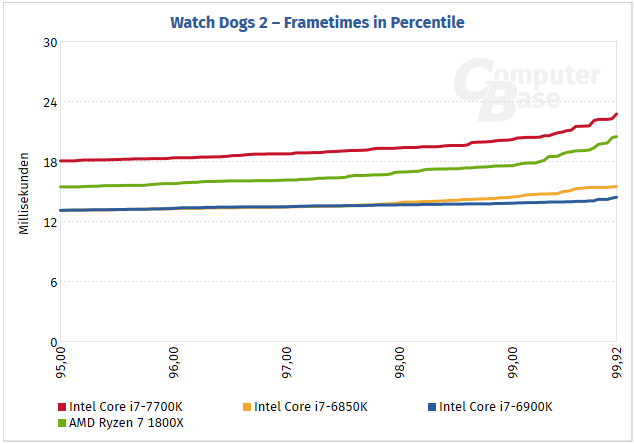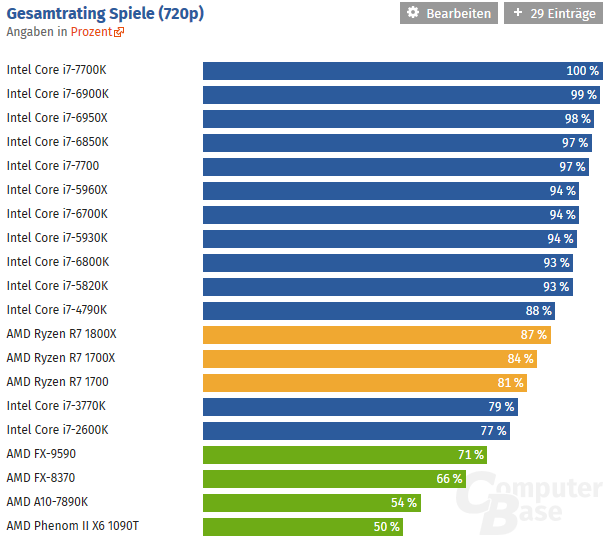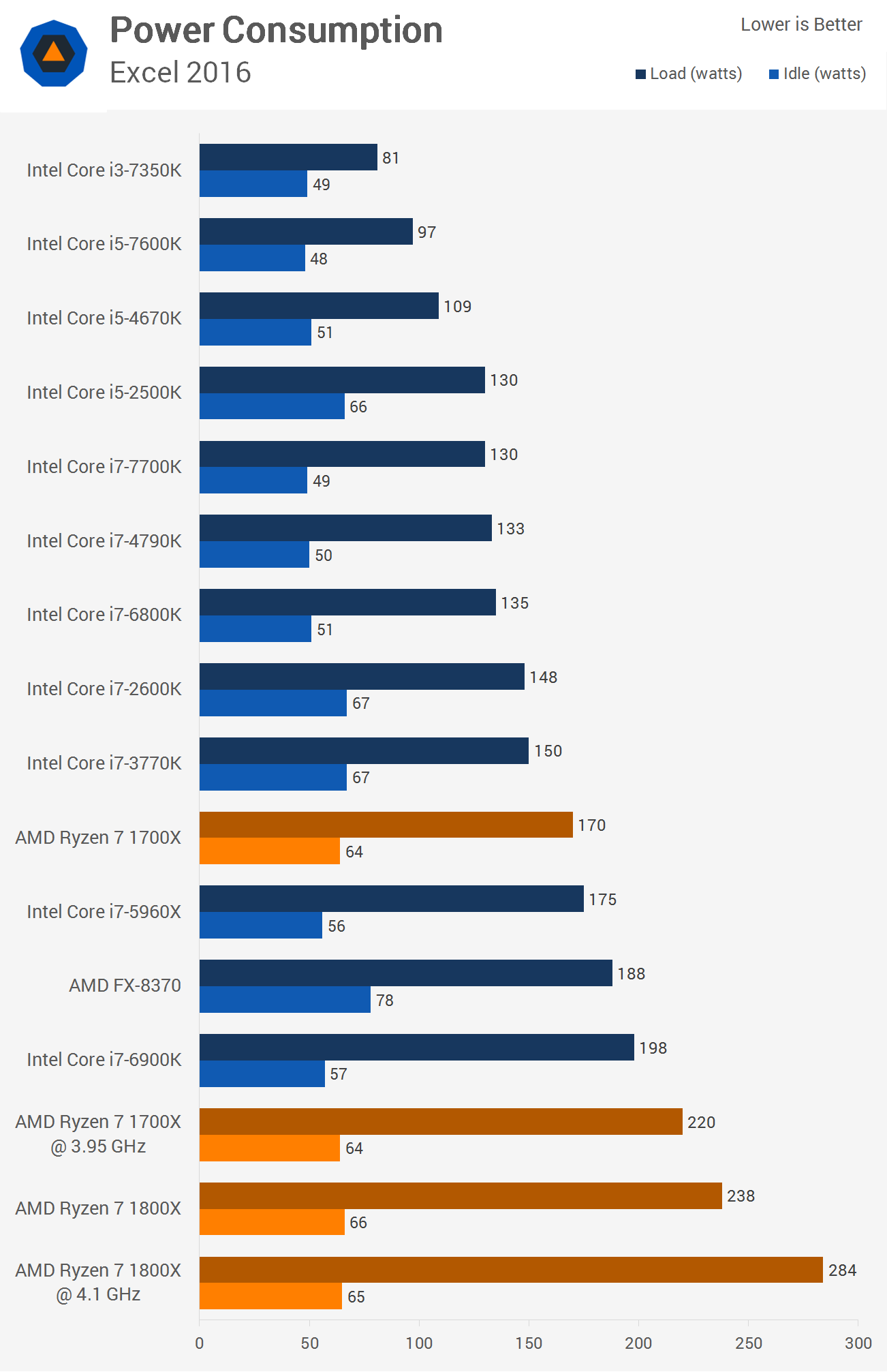I wish I had been wrong about this, but I saw it coming a mile away.
Definitely not a CPU to buy for gaming - and I don't think that anyone should expect the hex-cores to perform any better.
Seems like great value for certain types of workload that benefits from all 8 cores and is suited to their architecture though.
Well, something is clearly wrong with Ryzen at 1080p.
Well lower resolutions are where the CPU matters most in gaming, since you're less likely to introduce a GPU bottleneck.
The only thing increasing resolution does is compress the differences between CPUs because you're now running a GPU-bound test instead of a CPU-bound test.
That's why all
CPU testing should be done at 1080p or lower. I would use 720p to ensure that the GPU never hits 100% load.
Wow, pretty surprised to see the 5775C, a 3.3/3.7 GHz 4C/8T processor beat Ryzen in all those gaming tests.
If I recall correctly, those CPUs do particularly well in certain games/applications due to the 128MB of eDRAM on-board for the iGPU, which the CPU can use as a large L4 cache.
Unfortunately that's the only desktop CPU Intel have released with it. Generally the high-end iGPUs with eDRAM are mobile-only chips.
People were very disappointed when Intel did not release a desktop Skylake CPU with eDRAM.
It would be very interesting to see how things would perform if Intel were to actually put that eDRAM on a high-end CPU, since the 5775C really punches above its weight in certain games/applications.
I don't care about the iGPU at all, but would pay for that cache.
Yikes, overclocking results are abysmal. I definitely thought 4.2-4.3GHz would be possible.. and it's likely not helping the game performance.
When AMD announced that XFR would only push the frequency up by 100MHz, and their demo at the press event of a water-cooled chip crashed when trying to run all cores at 4.1GHz, any hope for them being good overclockers went out the window.
Don't expect the 6-cores to be any better, as those are just 8-cores with two cores disabled; i.e. failed 8-core CPUs.
Games that don't use more than 4 threads will benefit more from the higher frequencies. Not really surprised.
I was under the impression that Ryzen dynamically adjusts clockspeed based on the workload though.
It should boost up higher if only 4 threads are being worked hard.
Yeah, I think WD2 has pretty good predictive power.
That said, a 6800k might be a better deal at the gaming enthusiast level, both for current and future games, if you take OC potential into account.
Indeed.
I had been waiting for these reviews before deciding between a 7700K or a 1700/X build, but now I'm thinking that waiting for that 6-core Coffee Lake CPU in 2H17 is going to be worthwhile.
Then again you could keep waiting for faster hardware forever. I really should have upgraded my 2500K to a 6700K in August 2015.




